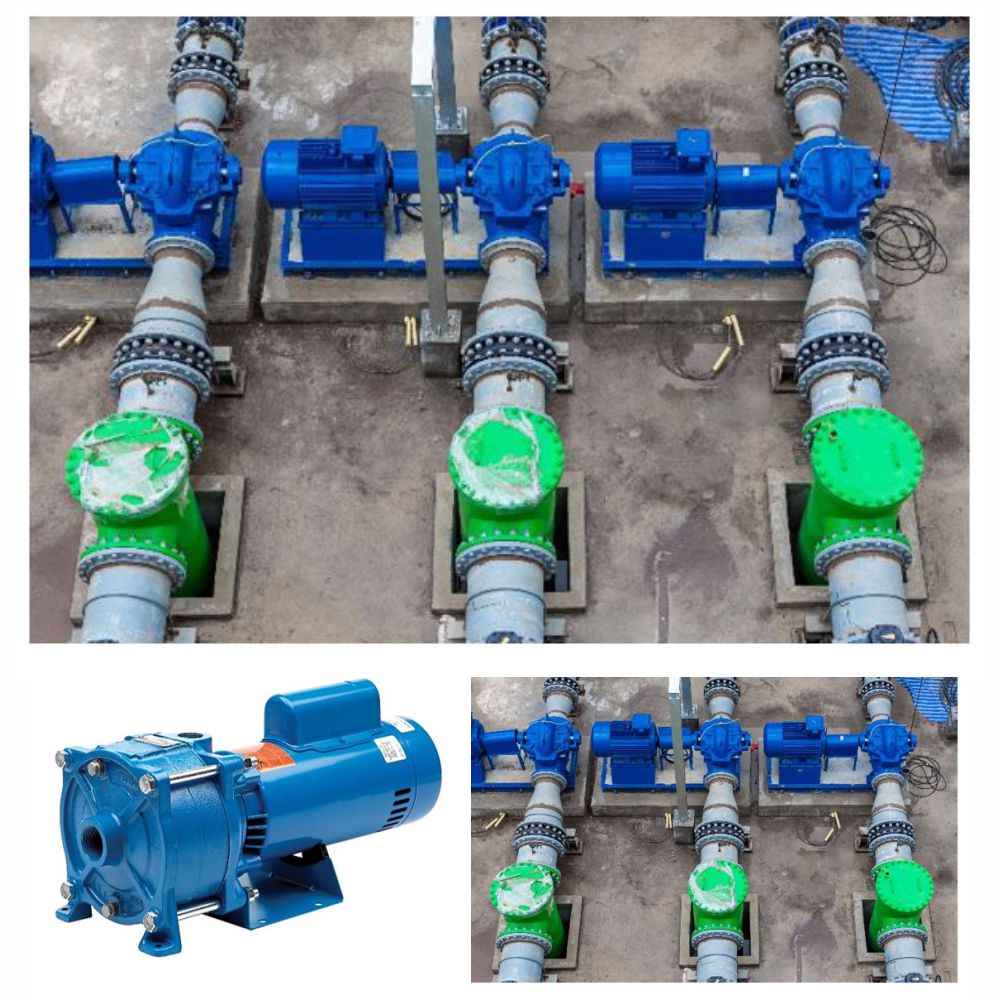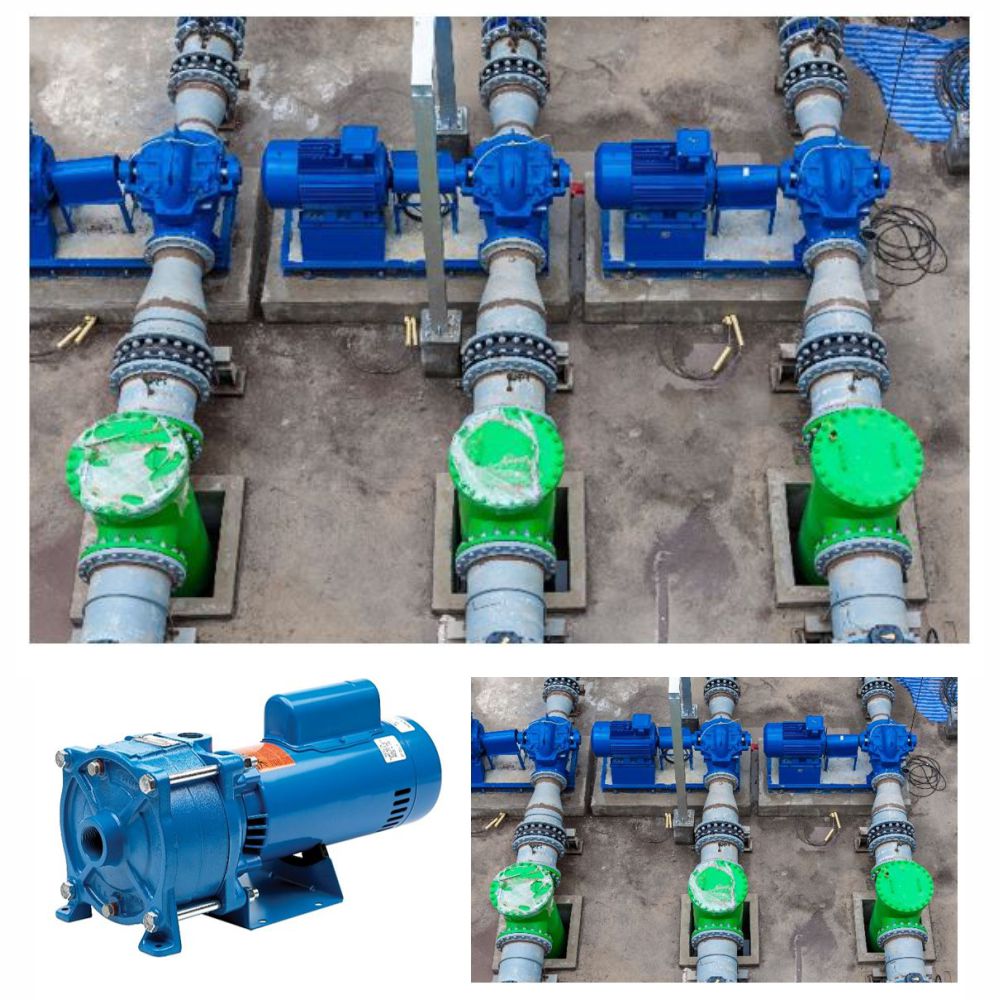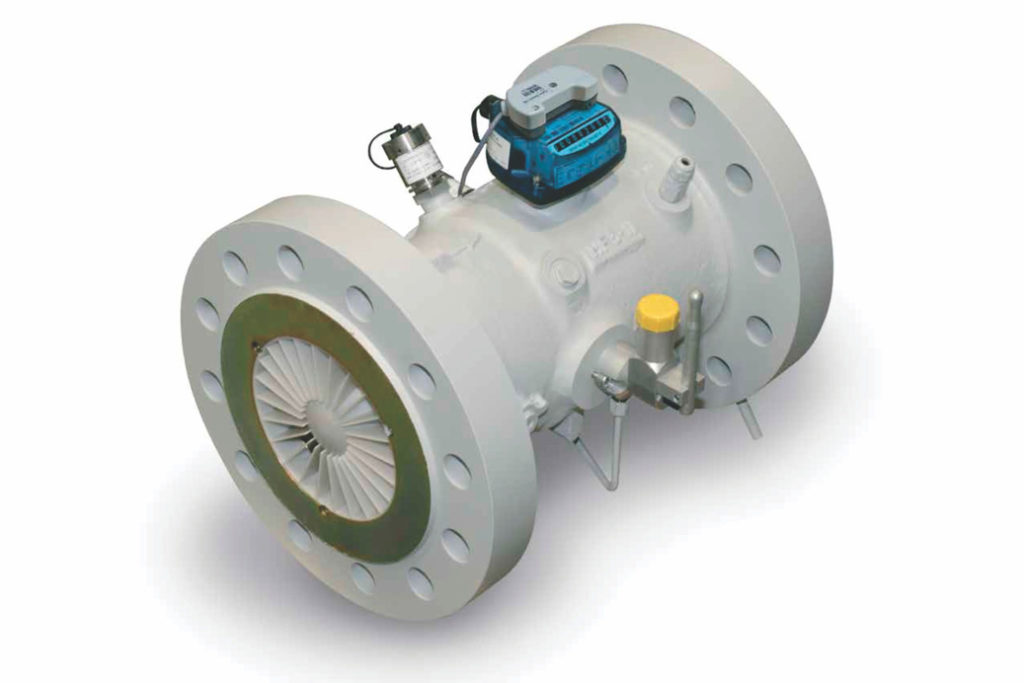
Centrifugal pumps are mechanical devices suitable for transportation of fluids with high flow rate and low viscosity and are also used for applications in the oil and gas, manufacturing, pharmaceutical, chemical industries, textile industries, rubber industries, power sectors, etc.
Centrifugal pumps operate by transferring energy from a rotating impeller to the fluid, which is inside a casing. Fluid enters the rapidly rotating impeller along its axis and is cast out by centrifugal force along its circumference through the impeller’s vane tips. The action of the impeller increases the fluid’s velocity and pressure and also directs it towards the pump outlet.
The characteristics of centrifugal pumps are:
- Modular construction, high interchangeability, fast delivery.
- Versatile shaft sealing arrangement, gland packing as a standard arrangement, and option to use the mechanical seal.
- Process type design results in minimum downtime.
- Back pull-out design enabling easier removal for inspection and maintenance.
- The pump comes in 3 bearing designs resulting in a good continuous process with high productivity.
- Below are factors that affect the performance of a centrifugal pump and need to be considered while choosing a centrifugal pump:
Working Fluid Viscosity: can be defined as resistance to shear when energy is applied. In general, a centrifugal pump is suitable for low viscosity fluids since the pumping action generates high liquid shear.
Specific Density and Gravity of Working Fluid: The density of a fluid is its mass per unit of volume. A fluid’s mass per unit volume and gravity of a fluid is the ratio of a fluid’s density to the density of water. It directly affects the input power required to pump a particular liquid. If you are working with a fluid other than water, it is important to consider the specific density and gravity since the weight will have a direct effect on the amount of work performed by the pump.
Operating Temperature and Pressure: Pumping conditions like temperature and pressures are important considerations for any operation. For example – High-temperature pumping may require special gaskets, seals and mounting designs. Similarly, an adequately designed pressure retaining casing may be required for high-pressure conditions.
Net Positive Suction Head (NPSH) and Cavitation: NPSH is a term that refers to the pressure of a fluid on the suction side of a pump to help determine if the pressure is high enough to avoid cavitation. Cavitation refers to the formation of bubbles or cavities in a liquid, developed in areas of relatively low pressure around an impeller and can cause serious damage to the impeller and lead to decreased flow/pressure rates among other things. One must ensure that the system’s net positive suction head available (NPSHA) is greater than the pump’s net positive suction head required (NPSHR), with an appropriate safety margin.
Vapour Pressure of the Working Fluid: The vapour pressure of a fluid is the pressure, at a given temperature, at which a fluid will change to a vapour. It must be determined in order to avoid cavitation as well as bearing damage caused by dry running when the fluid has evaporated.
If you are interested, have any questions, or you would like to get more information on any of the following information provided for Centrifugal Pumps, please contact us http://bit.ly/CONTACTEMOBELLA






Just want to say your article is as astonishing. The clarity on your publish
is just great and that i can assume you are an expert in this subject.
Well along with your permission let me to take hold of your RSS feed to
stay updated with imminent post. Thanks a million and please carry on the gratifying work.
Feel free to visit my homepage; search engine optimization
Your blog post certainly never ends to encourage me.
This post was yet one more testament to your ability.
Here is my website: Cheapest SR22 insurance
very good jon bro. very useful to me thx
I just like the valuable info you provide in your articles.
I will bookmark your weblog and take a look at again right here regularly.
I am fairly sure I will learn a lot of new stuff right right
here! Good luck for the next!
I visited many sites except the audio quality for audio songs present at this website is
in fact fabulous.
very good jon bro. very useful thx
My relatives always say that I am wasting my time here at net,
but I know I am getting familiarity everyday by reading thes good content.
my webpage – Teen textured hair styling
I blog often and I tгuly apprеciate уoᥙr cоntent. Tһis article һas truly peaked my intereѕt.
I’m goіng tο take a note of yοur blog and қeep checking fοr neᴡ іnformation about once per
wеek. І subscribed t᧐ your RSS feed too.
Would you look at the beauty of sharing? brother. very useful to me mersii mersii
I got this web site from my pal who shared with me regarding this website
and now this time I am visiting this site aand reading very informative posts here.
Feel free to visit my web-site … best dry cleaners seattle
Would you look at the beauty of sharing? Man. it helped me a lot mersii mersii
Quality posts is the main to interest the users to visit the
website, that’s what this website is providing.
My web site: Rego Park makeup artist